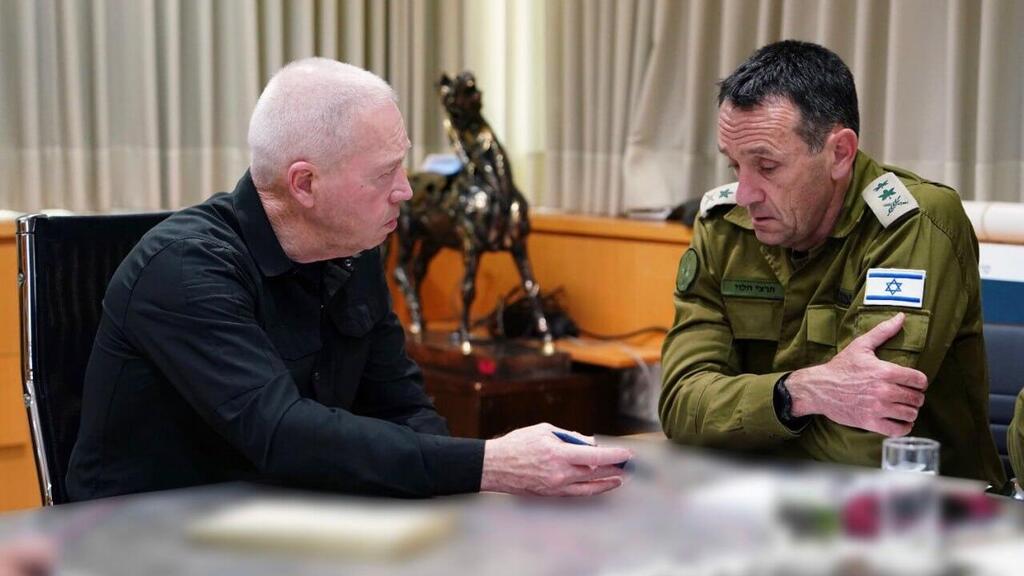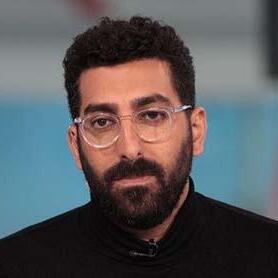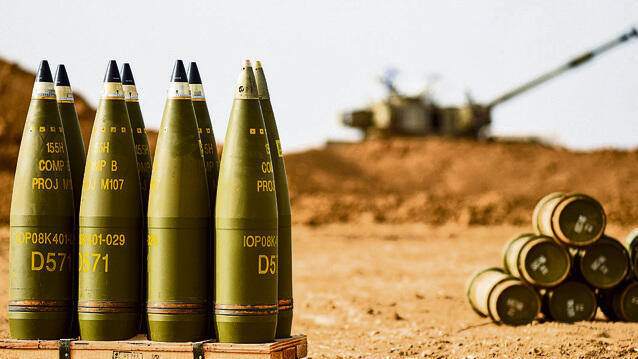"You sit in the Knesset Foreign Affairs and Defense Committee and try to convince the deputy chief of staff of the need to open more armament production lines, and he looks at you like you are some kind of fool. They make you feel like you are disturbing and should sit down and be quiet." That is how a lawmaker described his impressions during budgetary meetings with senior defense officials in early May 2023.
At the time, the IDF had just killed six senior members of the Palestinian Islamic Jihad (PIJ) terror group and long before anyone could imagine the events of October 7.
The committee was discussing the Defense Ministry budget and some of the members raised questions about the IDF's stockpiles of armament and their production overseas. Months later, after Israel was caught off guard and its weakness exposed, during the war in Gaza, it was revealed to be nearly completely dependent on the transport of U.S. military aid.
"Obviously a country such as ours is incapable of producing all of its needed armament, but some reliance on others can be reduced," one of the frustrated lawmakers, who attended that meeting said. "I came to the committee prepared, we had reports prepared by the National Security Council and other agencies who said Israel must produce more of its weapons and armaments, itself, so as to moderate its dependence on the Americans. Now people are asking themselves why we haven't bombed here, or attacked there? And Why we have waited to launch an offensive on Rafah? This is what we hoped to avoid," he said.
"We suggested to the deputy chief of staff and representatives of the defense agencies to approve and budget more money to establish production lines," he adds. "In general, they said, armaments were being produced, everything is fine, there is no shortage of funds."
2 View gallery


Defense Minister Yoav Gallant and IDF Chief of Staff Herzi Halevi
(Photo: Defense Ministry)
Defense Minister Yoav Gallant also claimed he was shocked when he entered office in December 2022 and realized that "not one bullet was made here." He said one of his first actions was to approach the CEO of Elbit, the military technology company, and demand a production line be opened. "We were in adequate condition when we reached the war," he told close associates. "I loath to think what would have happened, otherwise."
"Ultimately, this is a serious failure that sits on a conception," the concerned lawmaker said. "Production lines for light armaments, tank and artillery shells and bombs for the air force, were closed down amid talk of the need for a small, nimble and clever military, which as we unfortunately found out, does not work. The chief of staff himself talks about budgeting the use of armaments, behind closed doors, as if it is an act of nature, he said.
"Even Trump, in his interview with Time Magazine, did not reject the possibility of withholding military aid to Israel. So yes, we will always depend on the U.S. but I remember what then-prime minister Menachem Begin telling the U.S. ambassador when Washington threatened sanctions in the wake of the annexation of the Golan Heights: "We are not your vassals or a Banana Republic."
Credit is due to Eyal Zamir, director-general of the Defense Ministry, who by some accounts may be the next IDF chief of staff. "Zamir stepped up on the question of armaments before October 7 and pushed it into high gear," Said Ron Tomer, president of the Manufacturers Association, who is well-versed on the subject.
"I am not at all surprised that these things were brought up in the Knesset. Production lines were being closed down over the years, workers were let go. We've been shouting that Israel was losing its manufacturing independence," he said. "I hope that after October 7, people understand that a new mindset is needed."




